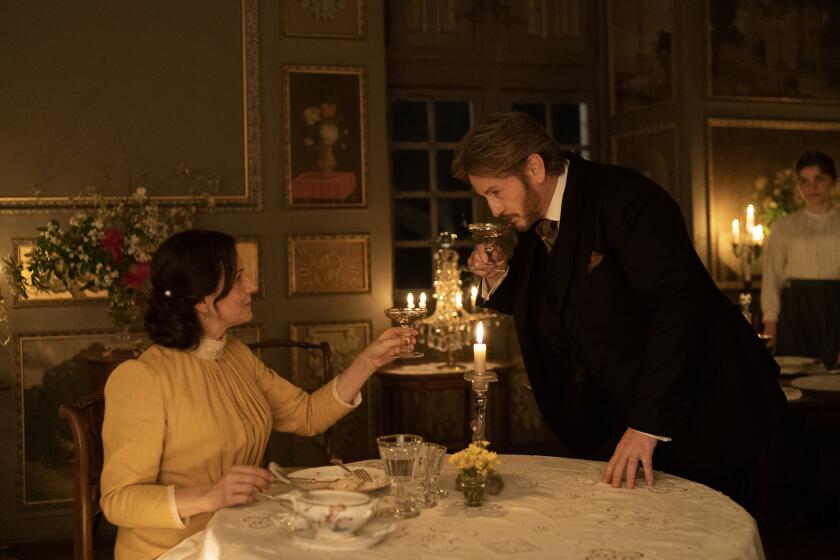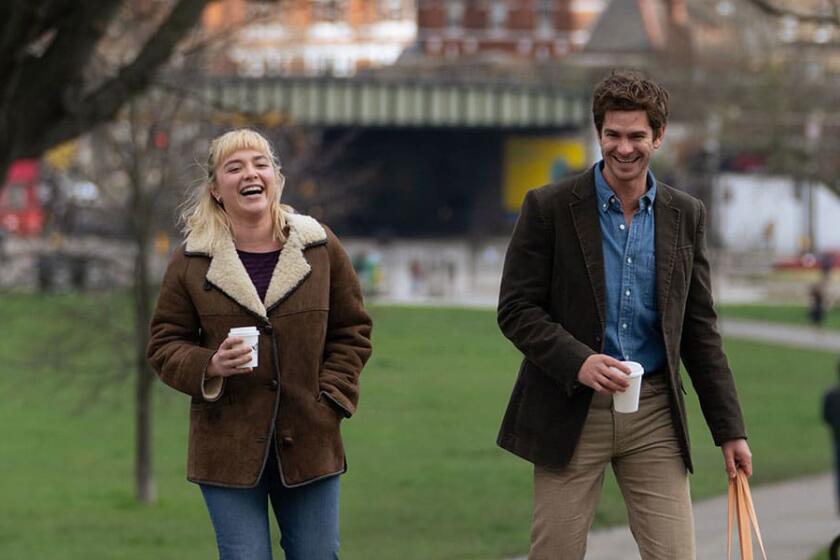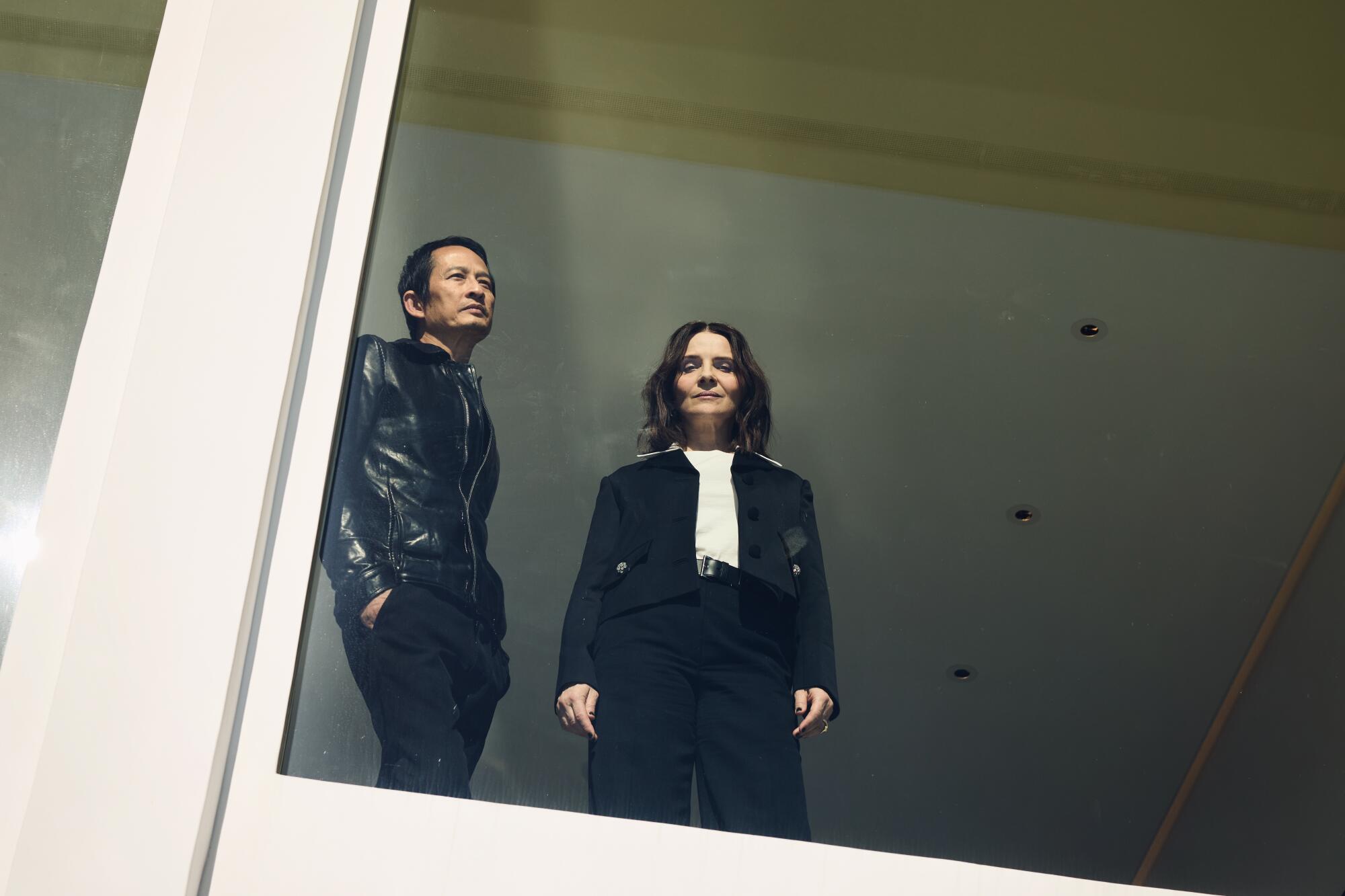
Juliette Binoche wants to discuss something other than food. It’s the smallest glance — a quiet nod of agreement — but I notice it as we’re speaking in the Hollywood Hills in early January about her latest movie, “The Taste of Things” (in theaters Friday ), a superb drama set in France in the late 1880s about a gourmet and his chef.
Because of its culinary trappings, the film has inspired raves like “sumptuous” and “mouth-watering,” but Binoche jumps at the chance to dig into the deeper metaphors baked into the exquisite meals her character cooks. To her, “The Taste of Things” isn’t about food. It’s about life and art and how we choose to show up in the world.
“Excelling is the passion of any artist,” the Oscar winner says. “For me, during the film, the cooking was like painting — it would be the same thing. A lot of times, we do things without thinking about it, without being involved. Suddenly, when it becomes meaningful, it’s purposeful.”
Director Tran Anh Hung is on his star’s wavelength. “These characters talking about food, that was interesting, but I wanted to make a movie about marital love,” he says softly. “People who’ve lived together for a very long time, who still have that desire, this respect for each other — they fully accept their age and they enjoy it very much.”
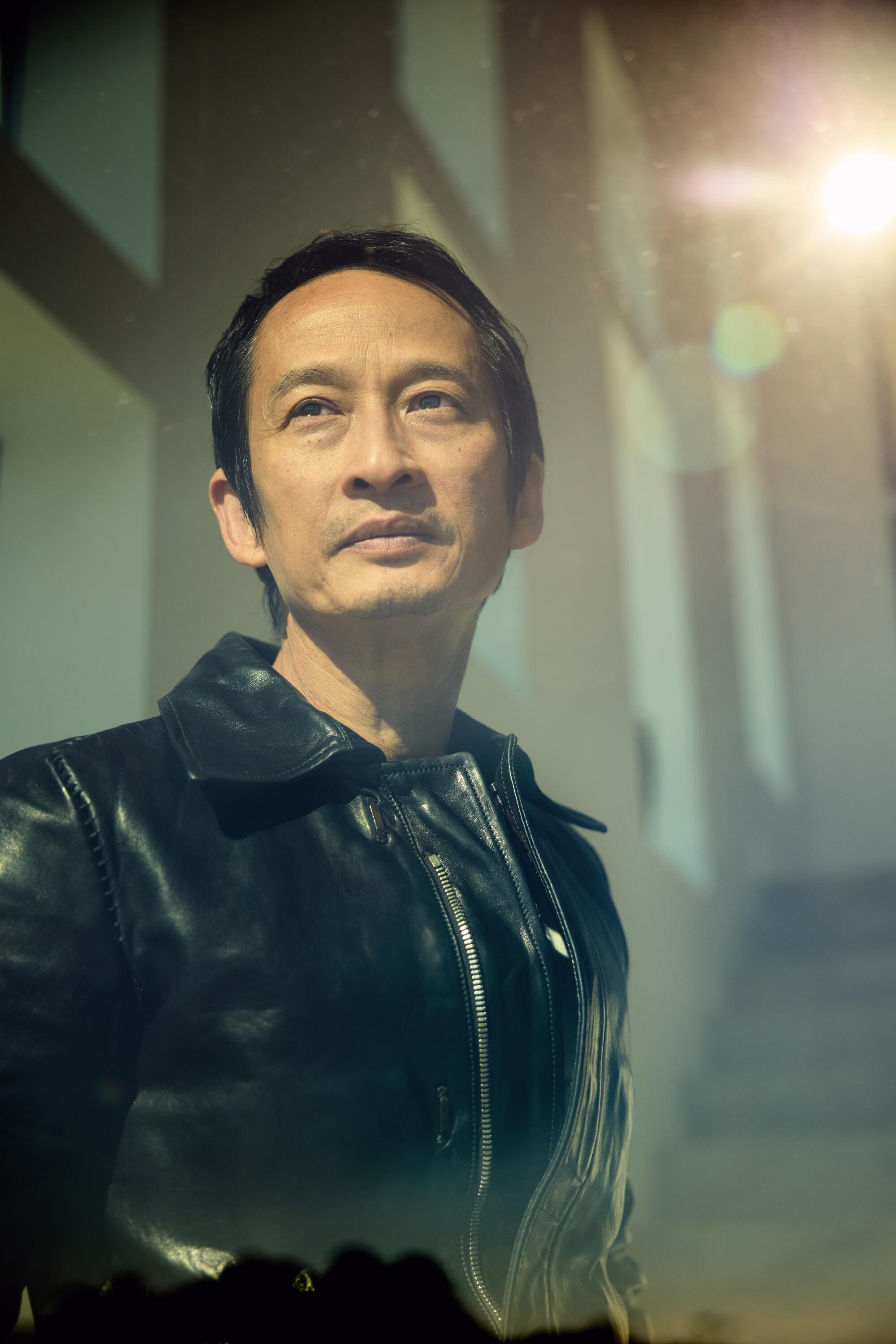
Drawing from Marcel Rouff’s 1924 novel “The Life and Passion of Dodin-Bouffant, Gourmet,” Hung elected to fashion a prequel of sorts. In the book, the esteemed chef Eugénie, luminously portrayed by Binoche onscreen, dies in the first chapter.
Hung brings her gloriously back to life, with acclaimed César-winning French actor Benoît Magimel playing Dodin, her patron and lover of the last 20 years. Dodin has repeatedly proposed marriage to Eugénie, but she always resists, prizing her freedom.
“The Taste of Things,” which earned Hung the directing prize at Cannes, traces their untraditional, intellectually stimulating romance, allowing the characters’ shared love of cooking to be an entry point into the movie’s deeper discussion of commitment and the rain that falls in every relationship.
Poignantly, “The Taste of Things” is also about two off-screen love stories — one that endured and one that didn’t.
The film is dedicated to Tran Nu Yen Khe, the actor, painter and sculptor who has been Hung’s wife for decades. (She starred in his 1993 debut, “The Scent of Green Papaya,” and served as costume designer on “The Taste of Things.”) Tempting as it might be to read into Eugénie and Dodin’s push-and-pull marital rapport, the filmmaker insists there’s no overlap. Still, Hung admits, “I saw that some dialogue I wrote, it’s something that I told my wife already.”
At a post-screening Q&A later that night, Yen Khe notes that their friends have suggested similarities between them and the onscreen pair. “I don’t see it,” she says, getting a big laugh.

As for the other off-screen couple? That’s a more complicated story. Binoche was easy to cast, a connection Hung first forged on the set of the French star’s “Flight of the Red Balloon,” where he had gone to visit director Hou Hsiao-hsien.
“It was just a feeling of listening to each other,” Binoche recalls of that initial encounter. “It didn’t matter what we were saying — it was just a delicate feeling of being in each other’s presence and saying that, one day, it’d be nice to find something to work on together.”
But who would play her Dodin?
Hung’s casting of Magimel created a potential hurdle. Binoche and Magimel had previously starred in the 1999 romantic drama “Children of the Century.” They also began a real-life relationship and had a child, Hana, now 24. But they split up about five years later, rarely being in close contact since.
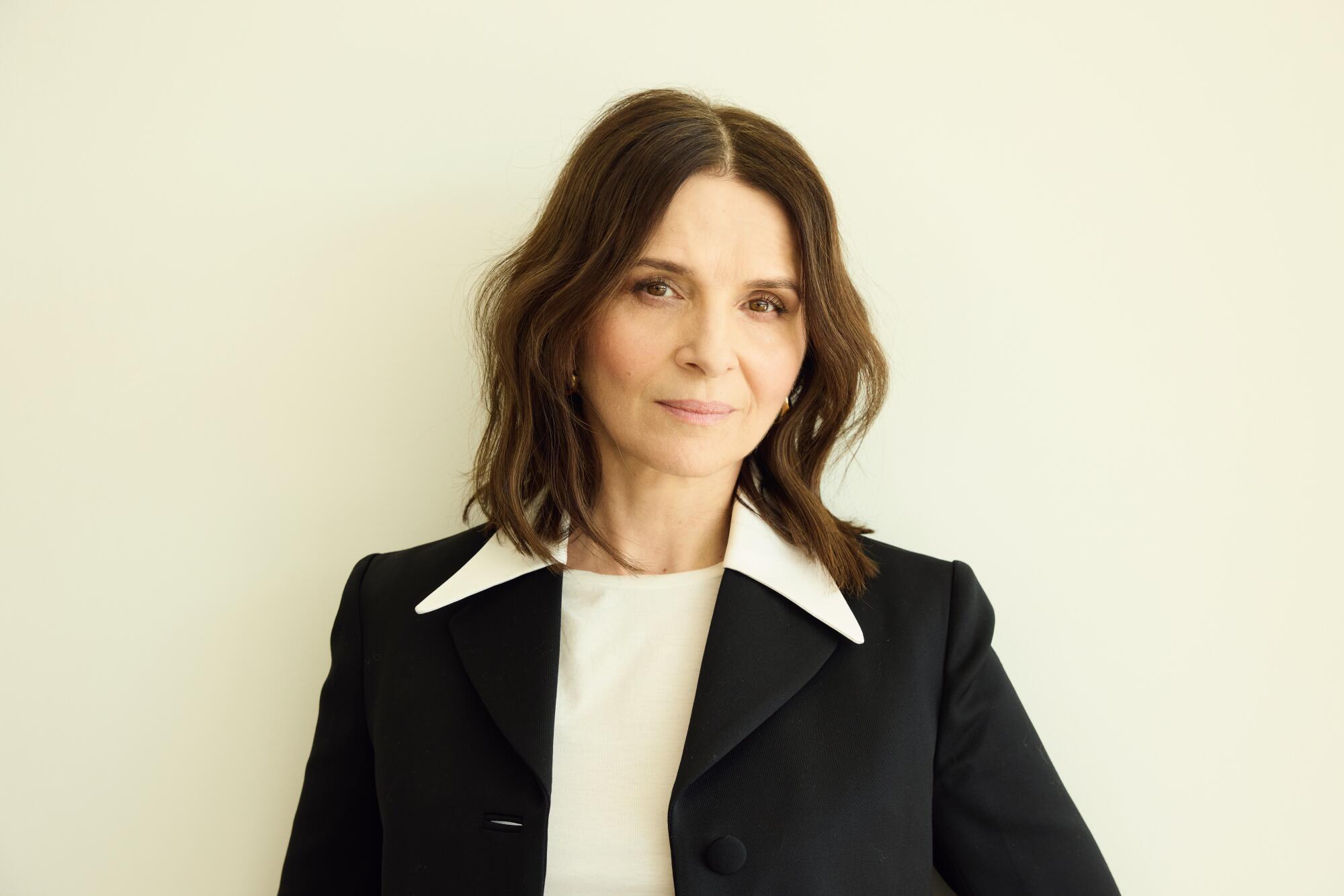
Binoche admits that she felt anxious about co-starring with her ex. Also, did she really want to relitigate an old relationship in the press when it came time to promote the film? She opted to push aside those concerns.
“I decided to be truthful to whatever was coming into my mind,” she says in regards to discussing Magimel in interviews. “I’m learning that you talk with your heart. When I was in my 20s, I was feeling that I had to hide, that I shouldn’t talk about my private feelings, because I wanted to protect something of me that I thought had to be protected. This is ridiculous — just say what you feel. So I decided I’m freely going to talk about what I’m going through.”
Tellingly, it’s Binoche who brings up Magimel during our conversation. (Visa issues kept him grounded in Paris, though he was meant to join us for the interview.) Speaking by Zoom later that same day, Magimel confirms her initial nervousness. “I heard that she had a little bit of anxiety, and I still don’t know why,” he says through an interpreter. “I had no anxiety about working with her again. I thought it was wonderful because it was going to bring something special to the part.”
Whatever their early nerves were, what emerges in “The Taste of Things” is a weathered love affair built on mutual admiration and a still-crackling sexual desire. As delicious as Eugénie’s concoctions look, the film’s attention remains riveted on these two people in the kitchen together, pursuing a dream.
“I like to see men and women at work,” Hung says. “We are not trying to make beautiful shots of food. It’s more about purpose — how these people work with the vegetables and the meat, and how they transform it.”
Binoche seems moved by her time on set with Magimel. “There’s not a lot of communication with him,” she says. “The only time, really, that I spent time with him was during the film, so it was very joyful for me. [It’s not] about the conflicts or whatever happened in the past, but lifting it into a place where it’s freeing — where you can express love and care for the other.”
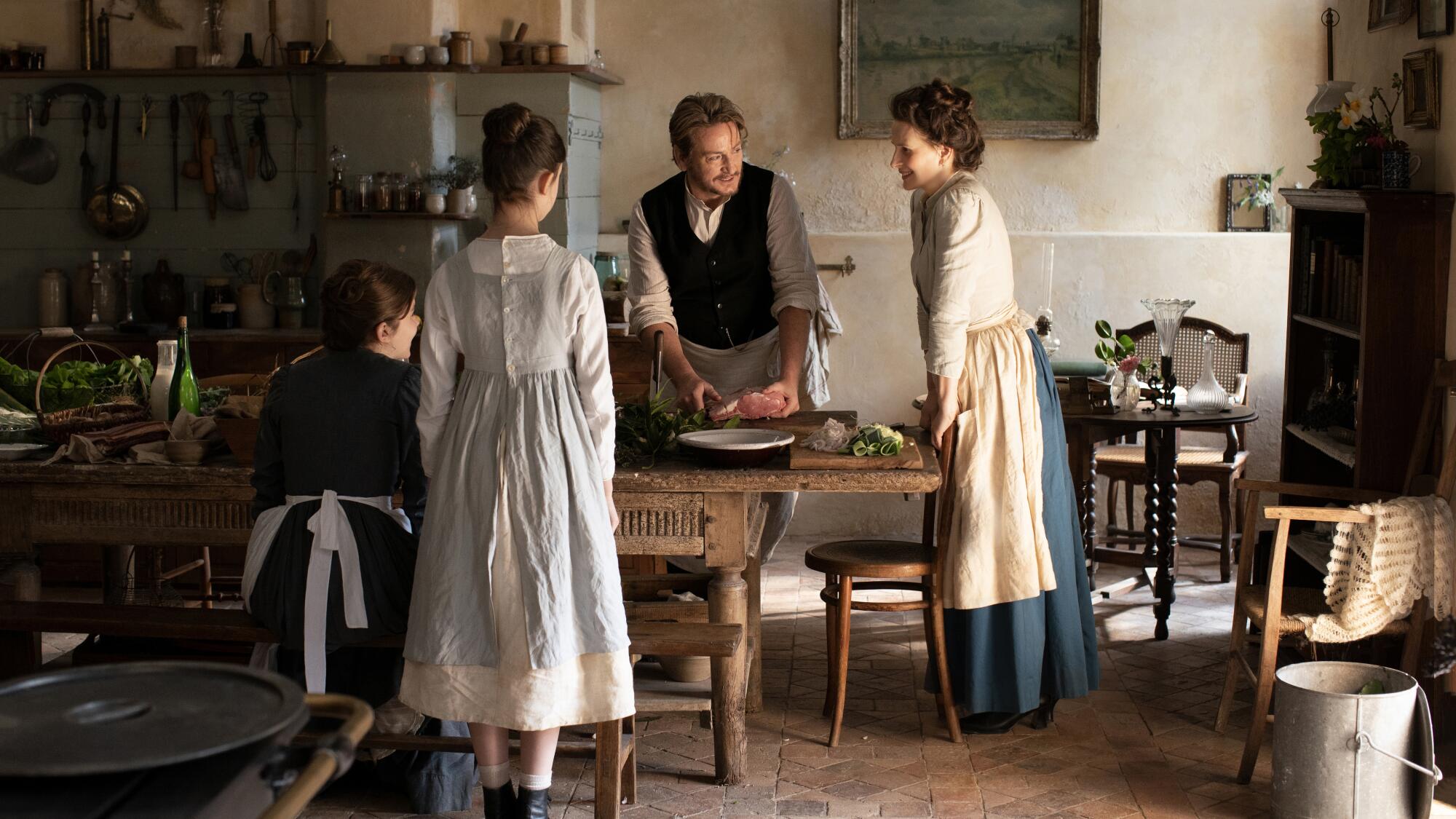
But then she cracks a smile, recalling the Cannes premiere. Binoche turns to Hung: “You were sitting on my left and you were sitting on Benoît’s right, so Hung was in between us.” Near the film’s end, Binoche noticed something. “Benoît cried and cried and couldn’t stop crying,” she says, pleased. “[I thought,] ‘Oh, he has some feelings for me.’”
Has she teased Magimel about this? “Of course, I took advantage of it,” she replies with a laugh.
“Juliette loves to say that I started crying because I was thinking of her,” Magimel confirms during his Zoom interview when I bring up the premiere. “The fact that you do have a real connection with someone is very helpful. I think it adds to the performance.”
“The Taste of Things” ultimately becomes a meditation on how we affect the people around us, whether through meals we’ve prepared or lives we’ve touched. How do you define a legacy?
It’s an especially relevant question for artists, but Binoche has come to understand that such things might be best measured by fans who come up to her wanting her autograph or to thank her for her work.
“I know it’s not about me, it’s about them — what they recognized through me in them,” she says of those interactions. “It’s very freeing. If you think it’s about you, you’re fooling yourself. They’re not asking for an autograph — they want to make sure the link they had with you is real. It gives them something warm.”
In filmmaker Tran Anh Hung’s mouthwatering crowdpleaser, Juliette Binoche and Benoît Magimel enact a passionate foodie romance loaded with in-kitchen sizzle.
A film like “The Taste of Things” gives something to viewers too, but it also seems to have given something back to its costars. Binoche has done interviews with Magimel since the movie’s debut, their affectionate, spiky rapport very much apparent. She doesn’t know what the future of their relationship will be, but she sounds hopeful.
“I took it as a gift that you gave us,” she says to Hung about their movie, “not only for Benoît and myself, but for our daughter and the whole family. When Hana saw it, she really felt like it was healing.”
Binoche thinks about this some more. “The real illness in our world is when things are stuck: not said, not lived, not expressed,” she continues. “It felt to me that this relationship, there was something stuck with him.”
Is her connection to Magimel unstuck now? “At least I expressed it,” she replies. “That’s the main thing. I think he knows I love him, and I know he loves me.”
“The Taste of Things” ends with them staring into each other’s eyes, experiencing a contentment forged by time and a shared history. It could be Eugénie and Dodin — it could be Binoche and Magimel. Sometimes performances create new worlds. Sometimes they reveal what has always been there.
More to Read
Only good movies
Get the Indie Focus newsletter, Mark Olsen's weekly guide to the world of cinema.
You may occasionally receive promotional content from the Los Angeles Times.
